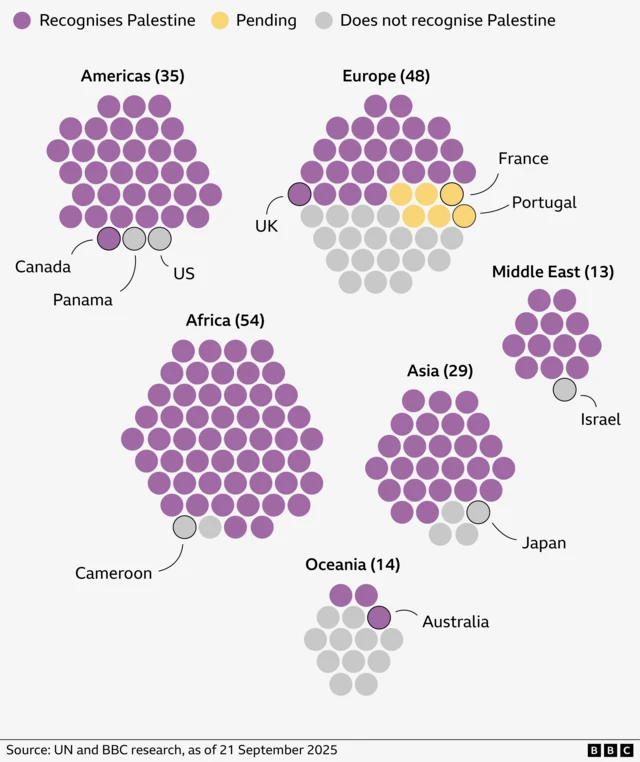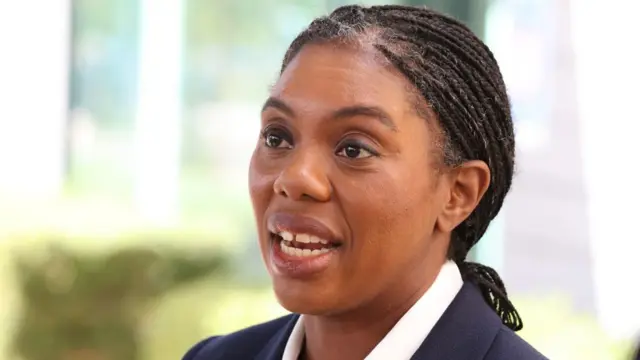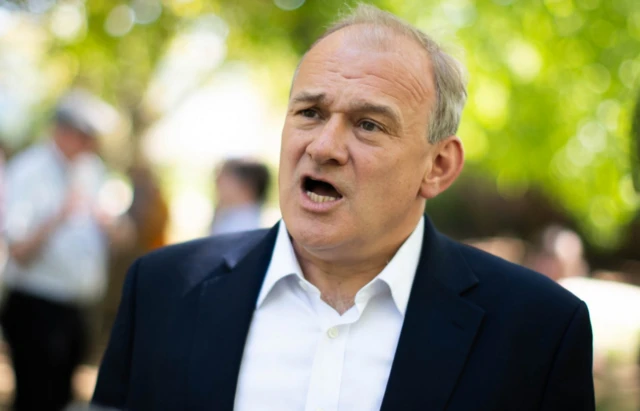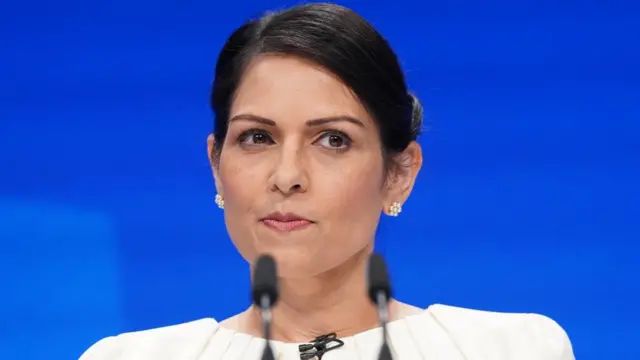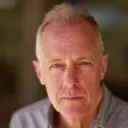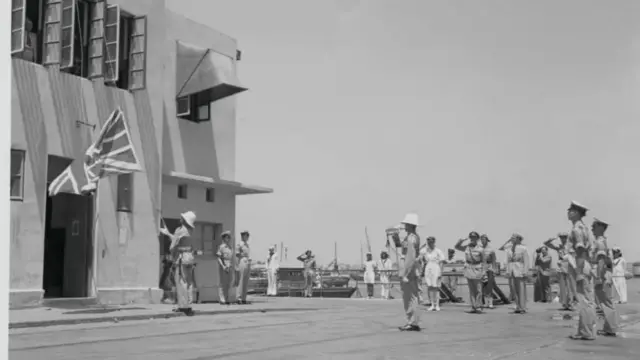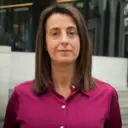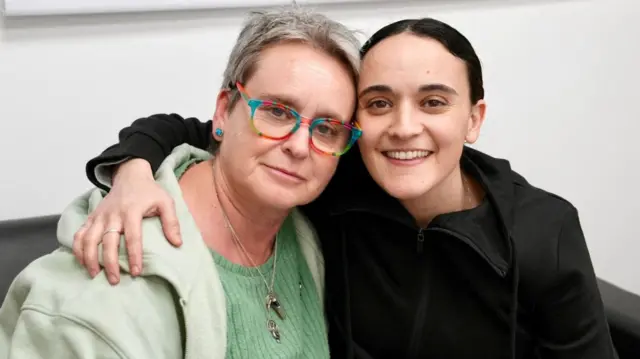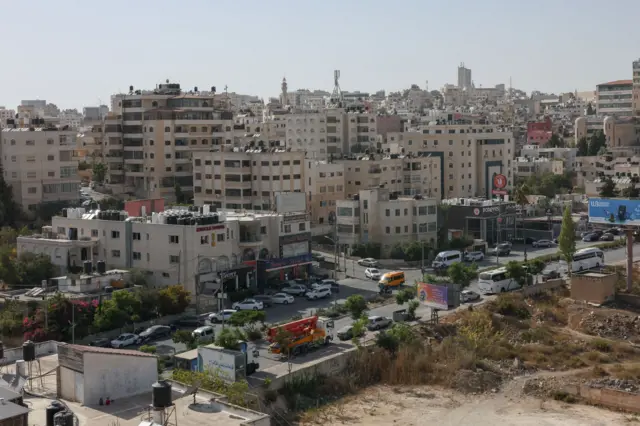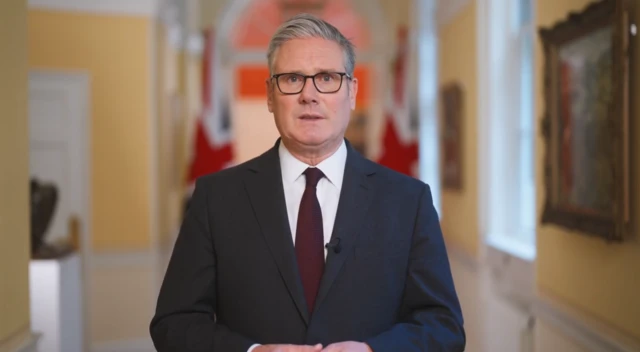In Gaza, Palestinians hope recognition will help bring the war to an endpublished at 16:47 BST 21 September
 Ethar Shalaby
Ethar Shalaby
BBC News Arabic
I have been speaking to people in Gaza, many of whom met the news from the UK today with joy.
Aida al-Safady, a 62-cancer patient, is one of those people.
“I am so happy," she tells me over the phone. "I feel this could be a new beginning for us as a country that could regain its sovereignty one day."
Her son-in-law, Abduallah Abu Rabie, also tells me that this is the news that he and many others in Gaza have been awaiting since the war started on 7 October.
Recognition will “hopefully put pressure on Israelis to stop the war in Gaza”, the 30-year-old says.
Other people in Gaza that I have spoken to - including 40-year-old Salama al-Awady - say this shows them the “British government is doing the right thing”.
He says: “I have to say that is a decision that is coming a bit late, but I would say better late than never."
But despite the positivity of the announcement, al-Awady says it won’t change anything on the ground.
“People are still starving and the fight is still on. Let’s wait and see if this will change in the coming days”.


